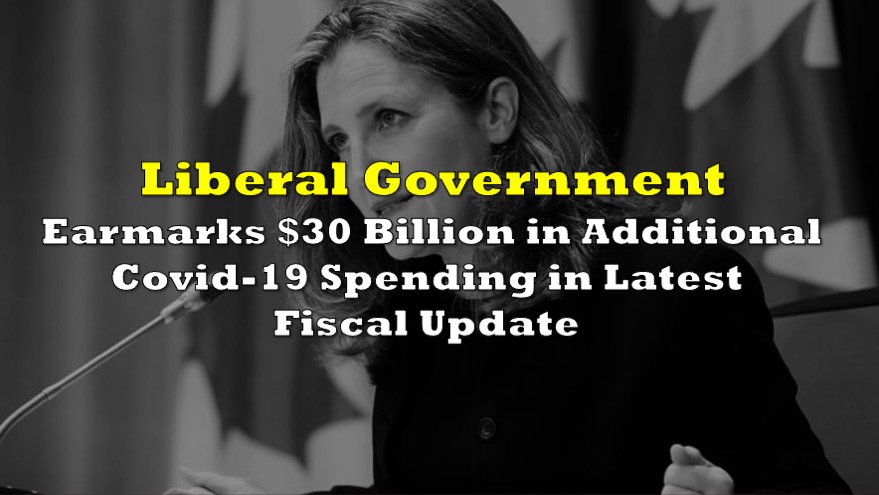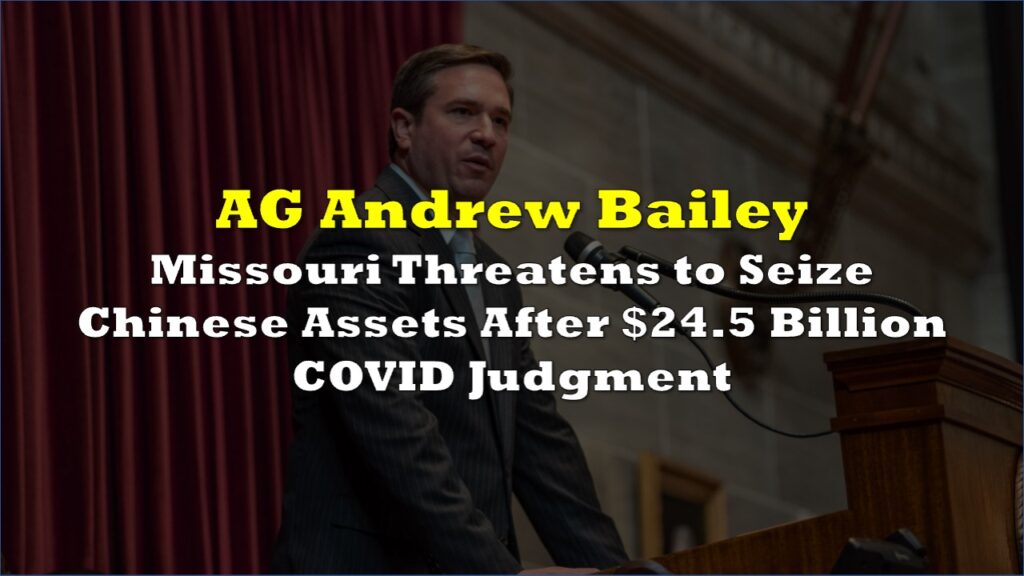The federal government has released details of its fall economic landscape, which includes additional spending on Covid-19, as well as Indigenous compensation. At the same time, the tabling of the public accounts was also released, which provided insight into last year’s spending during the height of the pandemic.
On Tuesday, Finance Minister Chrystia Freeland provided details of Canada’s economic and fiscal picture, but failed to release additional insight into the Liberal government’s agenda spending, which is slated for unveil early in 2022. The fiscal update earmarks nearly $30 billion in further Covid-19 spending over the next six years, with a $4.5 billion portion allocated specifically towards responding to the Omicron variant.
Moreover, the update also sets aside $40 billion over seven years for compensation for Indigenous children, as well as to reform the country’s child-welfare system. Nearly a quarter of that amount has already been booked as part of the previous fiscal year, which ended on March 31. Freeland also announced that about $5 billion would go towards British Columbia’s flood recovery. The update also shows that Canada’s debt-to-GDP ratio will peak at 48% this year, before moderately declining to 44% come the 2026/27 fiscal year.
Freeland’s fiscal update was simultaneously released alongside the tabling of the public accounts, which show that last year’s deficit stood at $327.7 billion, which is modestly lower than the $354.2 billion projected back in April. The government now expects that the current fiscal year will see a budget gap of around $144.5 billion, compared to $154.7 billion previously tabled in April’s budget forecasts.
The fiscal update comes at a time of soaring inflation, which hit an annualized 4.7% in October— the highest in 18 years. The Liberal party allocated much of the blame of rising prices on a robust demand for goods, which cannot be fulfilled due to global supply bottlenecks. In response, the federal government promised to launch a “targeted call for proposals” to help alleviate supply chain congestion as Canadian ports— a problem that has been compounded following the BC floods.
Information for this briefing was found via the Government of Canada. The author has no securities or affiliations related to this organization. Not a recommendation to buy or sell. Always do additional research and consult a professional before purchasing a security. The author holds no licenses.









